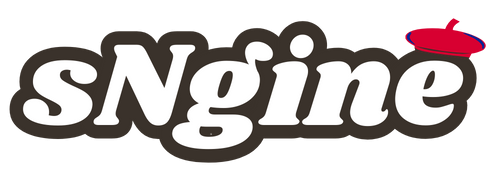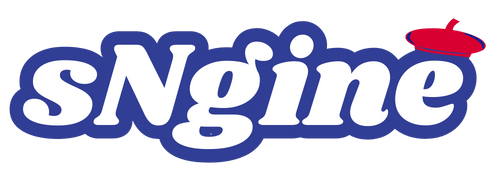The Liposomal Doxorubicin Market is gaining significant attention as oncology treatment paradigms shift toward more targeted, efficient, and safer drug delivery systems. Liposomal doxorubicin, an advanced formulation of the traditional chemotherapy drug doxorubicin, encapsulates the active compound within liposomes lipid-based vesicles that improve circulation time and reduce systemic toxicity. This innovation has revolutionized cancer therapeutics by optimizing drug distribution, minimizing side effects such as cardiotoxicity, and enhancing overall therapeutic outcomes.
Market Overview
Liposomal doxorubicin represents a major milestone in the field of liposomal drug delivery systems, offering a safer and more effective alternative to conventional chemotherapeutic agents. By encapsulating doxorubicin in liposomes with a polyethylene glycol (PEG) coating, the formulation ensures prolonged circulation, targeted tumor accumulation, and reduced cardiac toxicity. This delivery mechanism enhances the therapeutic index of the drug, enabling clinicians to maintain optimal efficacy while mitigating severe adverse effects.
The global liposomal doxorubicin market size was valued at USD 1.31 billion in 2024. The market is projected to grow from USD 1.39 billion in 2025 to USD 2.38 billion by 2034, exhibiting a CAGR of 6.2 % during 2025–2034.
Key Market Growth Drivers
- Rising Global Cancer Incidence
The increasing burden of cancer remains the primary driver for liposomal doxorubicin demand. The rise in cases of breast, ovarian, and blood cancers has prompted healthcare systems to adopt formulations that deliver strong efficacy while maintaining better safety profiles. Liposomal doxorubicin addresses this need by significantly lowering the risk of cardiotoxicity compared to conventional doxorubicin. - Advancements in Nanotechnology and Drug Delivery Systems
Continuous progress in nanomedicine formulation and liposome engineering has improved drug stability, circulation half-life, and targeted delivery. These innovations are expanding the potential use of liposomal doxorubicin and reinforcing the broader shift toward nanocarrier-based therapeutics in oncology.
𝐃𝐨𝐰𝐧𝐥𝐨𝐚𝐝 𝐅𝐫𝐞𝐞 𝐒𝐚𝐦𝐩𝐥𝐞 𝐑𝐞𝐩𝐨𝐫𝐭 👉
Market Challenges
- High Production Costs and Complex Manufacturing
The sophisticated technology required for liposome formulation and encapsulation drives up manufacturing costs. This complexity can limit access, particularly in emerging economies, where cost-sensitive markets dominate. - Stringent Regulatory Requirements
The approval process for liposomal drugs involves rigorous evaluation of stability, bioequivalence, and safety, which extends timelines and increases development expenses. Meeting these regulatory demands poses a challenge for smaller biotechnology firms entering the market.
Access The Press Release:
https://www.polarismarketresearch.com/press-releases/liposomal-doxorubicin-market
Regional Analysis
- North America
North America remains the leading market for liposomal doxorubicin, supported by advanced oncology research infrastructure, robust pharmaceutical manufacturing capabilities, and favorable regulatory frameworks. High awareness among clinicians and patients drives consistent product adoption. The U.S. continues to serve as a hub for product innovation, clinical trials, and commercialization of next-generation formulations. - Europe
Europe shows stable and sustained growth in liposomal doxorubicin utilization, bolstered by an increasing focus on evidence-based medicine and the expansion of oncology care centers. The region benefits from extensive collaboration between public research institutions and private pharmaceutical developers, leading to progressive treatment protocols. - Asia-Pacific
The Asia-Pacific region is emerging as a key growth area due to the rising incidence of cancer and improving access to advanced therapeutics. Government initiatives to enhance cancer care infrastructure, coupled with growing investments by pharmaceutical companies, are accelerating market penetration in countries such as China, Japan, and India. - Middle East & Africa
The market in this region is gradually expanding, supported by modernization of healthcare systems and increased awareness about advanced cancer treatment options. However, disparities in healthcare accessibility and economic constraints limit large-scale adoption. - Latin America
Demand for liposomal doxorubicin is increasing across Latin America due to ongoing improvements in cancer diagnostics and treatment infrastructure. Partnerships between multinational pharmaceutical firms and regional distributors are helping to make liposomal formulations more widely available.
Browse The Complete Report:
https://www.polarismarketresearch.com/industry-analysis/liposomal-doxorubicin-market
Key Companies
- Johnson & Johnson
- Lipoxen
- Pfizer
- Mylan
- Teva Pharmaceuticals
- Sun Pharmaceutical Industries
- Hengrui Medicine
- Inovio Pharmaceuticals
- Aurobindo Pharma
- Profound Medical
- Nanobiotix
- Emcure Pharmaceuticals
- Astellas Pharma
- OncoOne
Conclusion
The Liposomal Doxorubicin Market represents a critical intersection of oncology innovation and advanced drug delivery technology. With growing demand for effective yet safer chemotherapy options, liposomal formulations are becoming a vital part of modern cancer care. While challenges such as cost, regulation, and competition persist, ongoing advancements in nanotechnology and global oncology infrastructure will continue to fuel adoption.
More Trending Latest Reports By Polaris Market Research:


